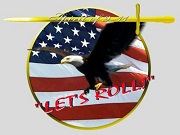New guy in our squad at the USPSA match. Turns out, he is active duty LE, and reserve SWAT at a major metro agency. He came out because he found their training and quals very low level, and wanted to test himself. Good shooter, good gun handling, accurate, but slow by gaming standards. His initial reaction was “wow, you guys shoot fast.” Super nice guys, and he said he hoped to shoot two matches a month as a way to work on pure technical shooting. He was shooting his duty G4 17, but with Taran basepad extended magazines, in Limited minor.




 Reply With Quote
Reply With Quote


 Then again, some who are passionate about DT also want everyone else to also make that their highest priority, and . . . well you can see where I'm going with that.
Then again, some who are passionate about DT also want everyone else to also make that their highest priority, and . . . well you can see where I'm going with that.




